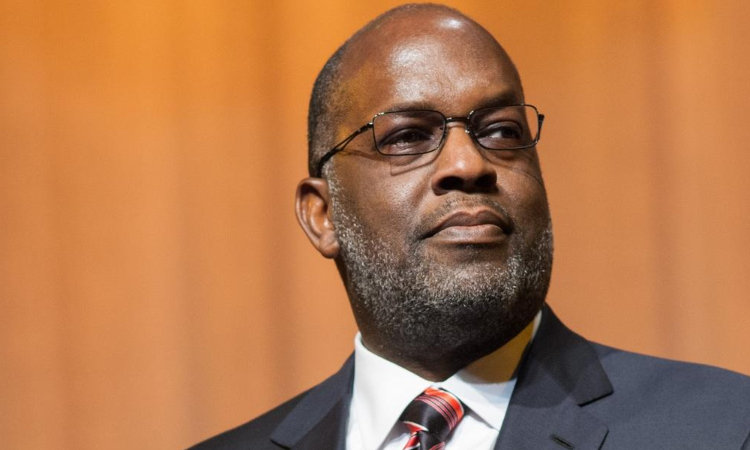The Kaiser Permanente School of Medicine Board of Directors announced on November 18, 2019, that it would rename the school in honor of the late Kaiser Permanente Chairman and CEO Bernard J. Tyson, a champion of high-quality, affordable healthcare and coverage. The name change, which took place shortly after Tyson’s passing, reflected his dedication to bringing the medical school from concept to fruition and highlighted Tyson’s and the school’s shared commitment to healthcare innovation, health equity, and access to high-quality healthcare for all.
Tyson had a 34-year career with Kaiser Permanente and, as a respected healthcare and business leader, expanded the organization’s focus on ensuring Kaiser Permanente reflected the diversity of the communities it served. Tyson began his lengthy Kaiser Permanente career with a six-month internship and continued his career to serve in leadership positions, including Hospital Administrator, Head of Marketing, Regional Senior Vice President, President and Chief Operating Officer, and Chief Executive Officer. In addition, he was an energetic champion of the Kaiser Permanente Bernard J. Tyson School of Medicine (KPSOM). Tyson advocated for the new medical school’s exploration and approval and ensured the school had the resources and support needed to flourish.
“Bernard Tyson was a champion for the health of entire communities, and for equity, inclusion, and diversity in healthcare and beyond,” said Mark Schuster, MD, PhD, KPSOM Founding Dean and CEO. “He was also deeply committed to and supportive of our school. We are proud that his legacy is remembered every time we say the name of our school, and we strive to carry on the spirit of his work in how we train our future physicians.”
In addition to Tyson’s influence on the development of KPSOM, he was lauded for his work as a healthcare leader, recognized by Modern Healthcare as one of the top three leaders in its 100 Most Influential in Healthcare list six times. He was also named one of Time’s 100 Most Influential People of the Year in 2017. During his tenure, Kaiser Permanente’s membership increased by 32%, from 9.3 million to 12.3 million members, and it expanded its footprint to the Seattle area with an acquisition of Group Health Cooperative.
“I was honored to serve as Bernard’s Chief of Staff during his tenure as chairman and CEO,” said Ije-Enu Udeze Nwosu, KPSOM Interim Chief Advancement Officer. “His vision embraced Kaiser Permanente’s unique role in improving health outcomes through teaching a more integrated approach to health. The beauty of the Kaiser Permanente Bernard J. Tyson School of Medicine is that it attracts and educates a greater number of diverse medical students who are able to attain their dreams of caring for patients and making an impact on the health of communities. The achievements of our students, supported by our dedicated faculty and staff, are bringing his vision to life each and every day.”
Tyson was deeply committed to community health and social determinants of care that influence health and he and his team delivered improvements in these areas during his tenure. Kaiser Permanente was one of the first healthcare organizations to recognize the link between health and trauma during a pioneering study on Adverse Childhood Experiences (ACEs) conducted along with the U.S. Centers for Disease Control and Prevention. While at the helm of Kaiser Permanente, Tyson shared that this research “brought new understanding to the long-term impacts of childhood trauma” and the organization expanded its work in preventing and minimizing ACEs to create healthier, more resilient future generations. In addition, Tyson was committed to addressing the climate crisis and focused on the greening of healthcare systems. He also spoke out about the impact of climate change on health, worked to destigmatize dialogue around mental health, and placed much-needed focus on the connection between mental health, wellness, and physical health.
Bernard J. Tyson’s legacy remains alive as our first class of medical students prepares to enter their residencies and bring Kaiser Permanente’s unique approach to health into more care delivery systems and communities across America.



